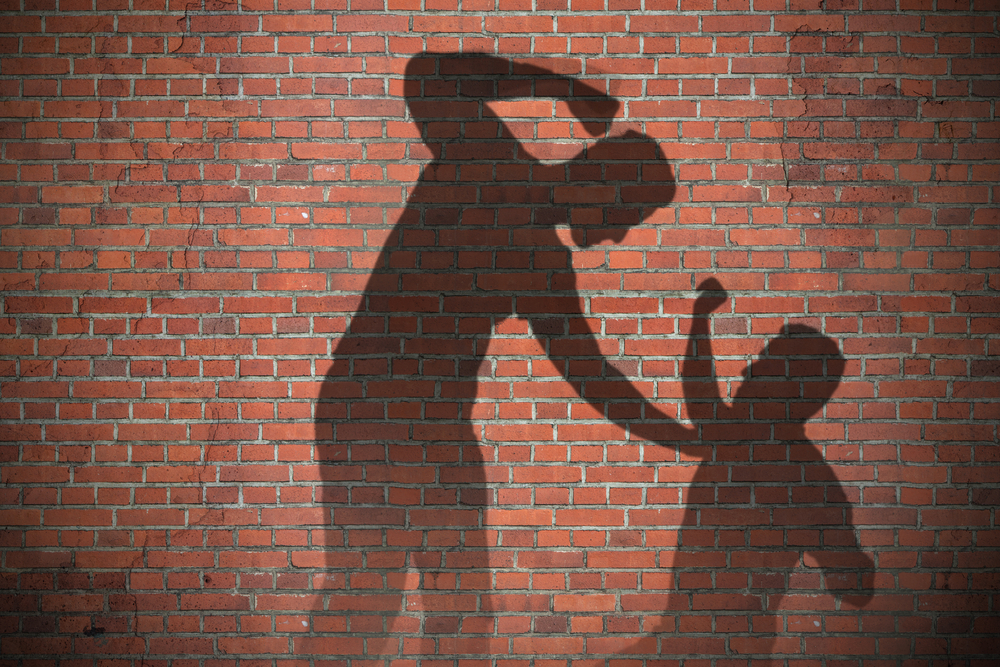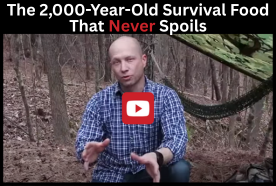Confrontations are ugly and messy and they don’t have a straightforward outcome. You won’t get any warnings or a “heads up” before your life is on the line. Regardless of the environment you find yourself in, when the confrontation starts, you’re in the middle of it without prior notice. Your heart starts pounding your senses are lit and most of the time, the body makes the moves for you, without knowing if they are the right ones or not.

Even if you may believe otherwise, that’s not a weakness. It is raw, unfiltered biology and that’s how our body and mind operate, doing what they are supposed to do: SURVIVE! In human confrontations, that most of us preppers fear (angry mob destroying anything in its path, being ambushed when bugging out or just looters showing up at our doors, just to name a few) these basic impulses can seal our fate. that’s why it is important to be able to control them and do what’s right when the moment comes.
Let me tell you how these instincts can flip from lifesavers to death traps, and more importantly, what you can do to wrest back control.
How your brain works against you
During a conflict, especially a violent one, your brain is most certainly going to overload and it won’t be on your side when the punches and kicks start flying. Well, not how you would expect at least and how your “at peace” consciousness, your rational thinking should be acting. Your brain is wired to do one thing, and one thing alone, to survive. When a threat hits, that tiny almond-shaped part of your brain called the amygdala puts in motion a chemical process which floods your system with adrenaline. You probably experienced this surge of adrenaline during various experiences throughout your life. It’s easy to recognize since your heart races, the breathing speeds up, and your brain goes into overdrive, prioritizing quick reactions (or not) over clear thinking.
This is what experts call the “fight, flight, or freeze” response and you surely heard of it before. It’s primal and powerful, and it was designed a long way back when our ancestors had to face predators on a daily basis and immediate dangers were present at every turn. But here’s the catch: modern confrontations are messier. They’re not just about outrunning a saber-toothed tiger, a rival tribe or a thunderstorm. Nowadays, they involve people who might be armed and sometimes terrifyingly close. In fact, as I’ve mentioned before, the human factor, believed it or not, is the most unpredictable factor of them all. For example, wild animals follow a certain pattern before attacking and during the attack, while humans can simply trigger an attack due to an emotional trigger. So, when your impulses fire off in these situations without a logical filter, you lose almost all the control (like in the freeze situation) you need to survive.
Think about it like this: your brain’s survival mode is a blunt force that hasn’t changed much since the time our ancestors had to fight the primordial dangers. It doesn’t act with finesse, nor diplomacy, and it kicks with all its power, often shutting down logic and overthinking, leaving only raw reactions. However, those reactions or impulses we mentioned before, are not always safe choices.
The Flee impulse
Running, escaping or simply putting it, fleeing is probably the most understandable impulse of the three. Who wouldn’t want to get the hell out of a dangerous situation? I did it, you did and so many others. When chaos erupts, whether it’s a looting spree in your neighborhood or a shooting settling disputes on a crowded street, your gut screams to run. And sometimes, quite more often than most people realize, that’s the smartest move.
However, running is not that easy and sometimes it can be dangerous since fleeing without a plan, especially when you’re deep in hostile territory, will make you a target in everyone’s eyes. If a group walks through a rough urban area, and suddenly gunshots ring out, one or more persons will panic and start running, they will get into unknown alleys alone. That split-second impulse that made them run without a direction or plan? It might just get them caught or worse.
Running can signal weakness to predators in the wilderness world, but the same goes for us, “evolved” humans. It can isolate members from the group (so no more safety in numbers), leaving them vulnerable. Worse yet, it can escalate the threat. Any attacker who sees you turn your back, gains confidence since it has the upper hand, they might chase or shoot. In such a case, you will be exposed and your escape routes are erratic and only luck will save you.
There’re also some legal implications that need to be considered (which honestly, I find strange) For example, in some states, running from an attack could be seen as abandoning others, especially if you’re part of a group with responsibilities (say law enforcement, neighborhood watch, first responders, etc.). And if fleeing leads to an escalation that leads to chasing or triggering a violent response, your actions might be analyzed by law enforcement or courts later. The law isn’t always on your side, acting on impulses, regardless if you think that was the right call.
The Freezing impulse that kills you
Freezing is a peculiar and strange impulse and some scientists believe that it’s a remnant of the hiding instinct, that somehow is more powerful in certain people. It’s like your body decides to hit the pause button, remaining immobile and hoping the danger will just go away. In fact it’s a natural response in certain animals when their instincts tell them that if they don’t move, the predators won’t see them. However, for the animals the freezing impulse it’s also a moment to assess, to gather information before making the next move. For humans, that assessment never comes in time when they freeze and it gets them killed. In many animal species, freezing works because when standing still, they are able to blend with their environment and go unnoticed. Humans are not equipped with the same camouflaging tools and the human predators will always notice them.
Picture this: you’re alone on a deserted street. Suddenly, you hear a strange noise and footsteps closing in fast. Your brain locks up and your muscles stiffen. You want to react, but the world slows down around you and it’s like in the movies when protagonists see everything in slow motion. The attacker keeps approaching and you still do nothing.
And the worst part is that the aggressor, when sees you freezing in place, believes that you have surrendered and for them is often times, an invitation to strike. That hesitation gives them the upper hand, a moment to close the distance, to decide how far they want to push it.
When Fighting puts you on top
The fighting instinct is often seen as the last line of defense. It’s the surge of adrenaline that is telling you to fight back and to stand your ground. And yes, I do agree that sometimes fighting is exactly what keeps you alive. However, I also know that impulsive fighting, without a quick assessment is a double-edged sword.
If you respond to aggression with the same course of action, it can escalate a situation from tense to deadly in seconds. Imagine you’re navigating through a heated crowd during a city evacuation. Someone bumps into you, even by mistake, and suddenly your adrenaline spikes, urging you to throw the first punch. Suddenly, you’re the one causing all the trouble and you become the center of attention, creating chaos, while being surrounded by hostile people. That fight impulse, untampered, turned you from a survivor into a target.
Fighting isn’t just about physical risk and, in most cases, it carries legal consequences. In fact, there are folks nowadays that seek to get a fight out of you just to obtain monetary benefits since the use of force is condemned by the law. And these laws vary wildly depending on your location, and overstepping them can land you in serious trouble. I do agree that in a survival situations, coming on top is the thing you must do, However, I also understand that not everything is about winning a fight, it’s also about figuring out when fighting is justified and when it’s a fatal mistake.
How to control your impulses from making mistakes
So, how do you stop these impulses from getting you killed? The truth is, you can’t completely shut them off since they are hardwired into our system and that’s not how our bodies work. However, the world our there shows us that you can train your brain and body to take control before impulses hijack your survival.
First, as you’ve probably heard it over and over again, awareness is key. You should be able to tell when you feel that adrenaline dump, when your vision starts to tunnel (we talked about this in a previous article) and when you feel the urge to bolt or freeze. In this situation you have a split-second to steer the ship, or more precisely, to control your body. Here is where mental rehearsal helps and why running through scenarios in your mind (if not in real-life) and envisioning how you’ll react calmly and deliberately, can save your life.
Stress control, or training under stress works wonders here. It’s about exposing yourself, safely in a meticulously crafted environment to controlled stress, whether through sports like martial arts training or high-pressure decision-making drills (like the ones designed for military or law enforcement), or even simulated confrontations, say in a self-defense course. If you managed to do any of this, your brain learns to stay cool when the real cards begin to fall.
Emotional control is another training that can be done and it’s all about noticing your feelings but not engaging them or letting them dictate your actions. Often times, meditation and breathing techniques can lower that adrenaline spike, giving you precious moments to think instead of react. However, for others, depending on their personalities, past experiences-traumas, and emotional background, specialized help could be needed.
And in our dangerous world situational awareness it binds all together. For example, if you are able to see troublle before it’s on top of you, you gain the advantage of choice, the upper hand how we used to say and you are able to give yourself time to pick a logical response rather than relying and going with a raw impulse.
When every impulse blows at once
These impulses we talked about don’t always play along nicely and sometimes, for example, you freeze before you fight or flee. Sometimes you want to run but your brains knows that you need to stand your ground and avoid exposing yourself further. The problem is that there’s no one-size-fits-all in survival confrontations and everyone who says otherwise is sugarcoating it.
The mark of a seasoned fighter or survivalist, call it as you will isn’t just knowing these impulses exist but having the mental flexibility to choose between them. It all lies in the ability to read the room, sort of spaek and to choose your action with intent, not emotion. That’s what keeps experienced fighters alive.
Remember, every scenario we face is unique and the impulses that nearly got us killed yesterday might save our life tomorrow, or the next day and so on. This of course, if you learn to control them when they come out.
Why facing your past matters
You can’t train and control what you don’t know. And that goes double for how your body and mind react when you are in trouble. Think about this, if you’ve ever been through a real confrontation before, you’ve already got a baseline. You should already have some close on how you reacted and if your system breaks or holds under stress. However, most of the people you will encounter out there don’t want to face those truths head-on. Due to “manly ego” we all have, some either downplay how they froze, or they convince themselves they fought perfectly when maybe they didn’t.
I believe that being brutally honest about how you acted during a nasty confrontation is the first step in learning how to control and overcome these impulses. That gut-level freeze, the urge to run, maybe even a fight that has gone wrong, should be necessarily seen as a sign of weakness. It’s the first step in owning your flaws. However, as I said, it is hard because no one likes admitting they got scared or made mistakes, especially in front of themselves. But if you hide the truth from yourself, in the first place, how will this help you the next time it happens?

Acknowledging those flaws isn’t just about self-shaming, and it’s rather about knowing exactly where you need to put in the work to do better the next time the heat is on. It’s about building mental resistance to rewire those impulsive responses. Training isn’t easy, and sometimes you have to give it your all. It’s a continuous, targeted mental effort to close the gap between instinct and intention.
So, after you’ve been through it, take a hard look at your past. Be real about what went right and what went wrong, because survival isn’t about being perfect. It’s about you bout being honest enough to get better and improve your flaws.
Training your brain is hard and it takes a lot to win this fight
At the end of the day, regardless how the confrontation went, you have to acknowledge that at the start of any of it, your biggest enemy isn’t always the attacker or the chaos around you and it’s the impulses inside your own head. The running that isolates you, the freezing that blocks you from acting or reacting or the fight that escalates everything out of control.
If you want to be ready, you have to get on top of those impulses before they own you. Train hard, make assessments before acting and stay aware of everything around and inside you. When that moment comes, and it will, your life depends on what you were able to control and what you let go loose.
No matter what expensive gear or tools you have on you, it’s always the mastering and control of your mind that gets you out of trouble.



























































































